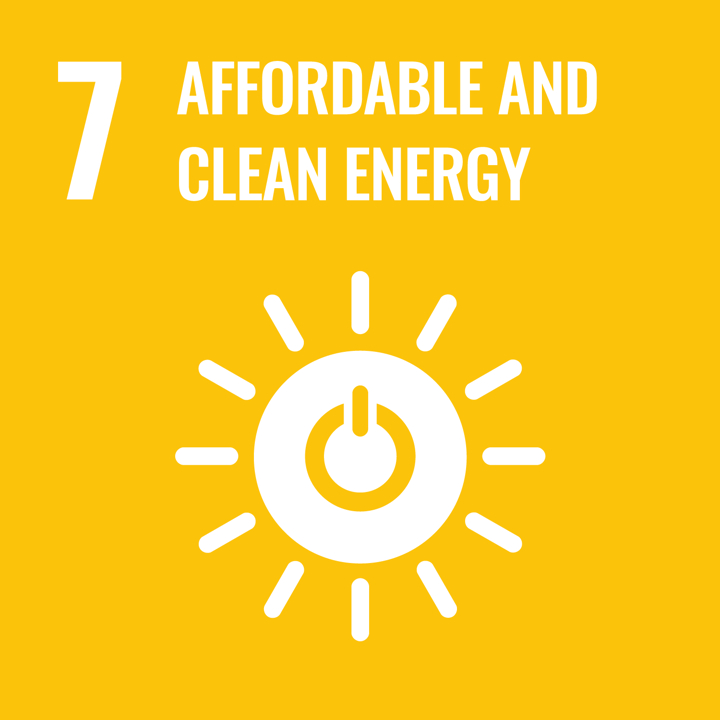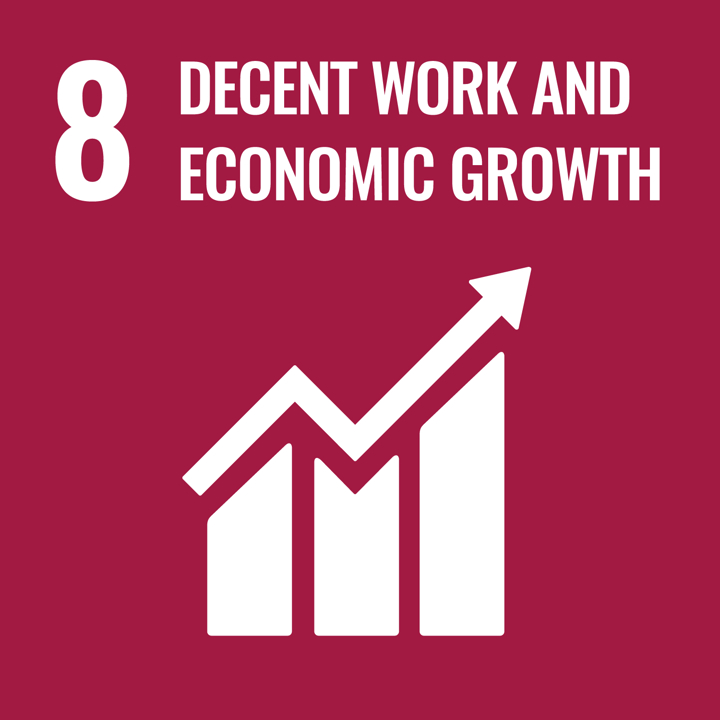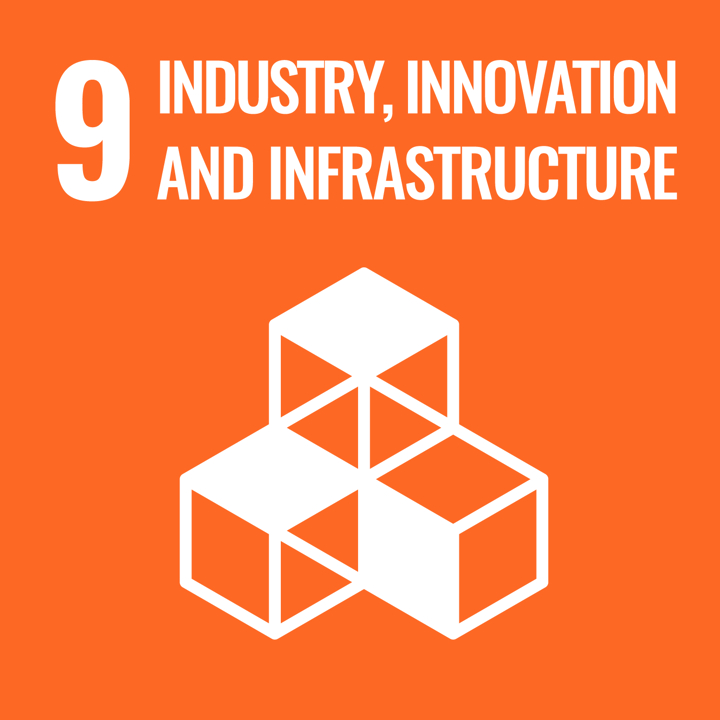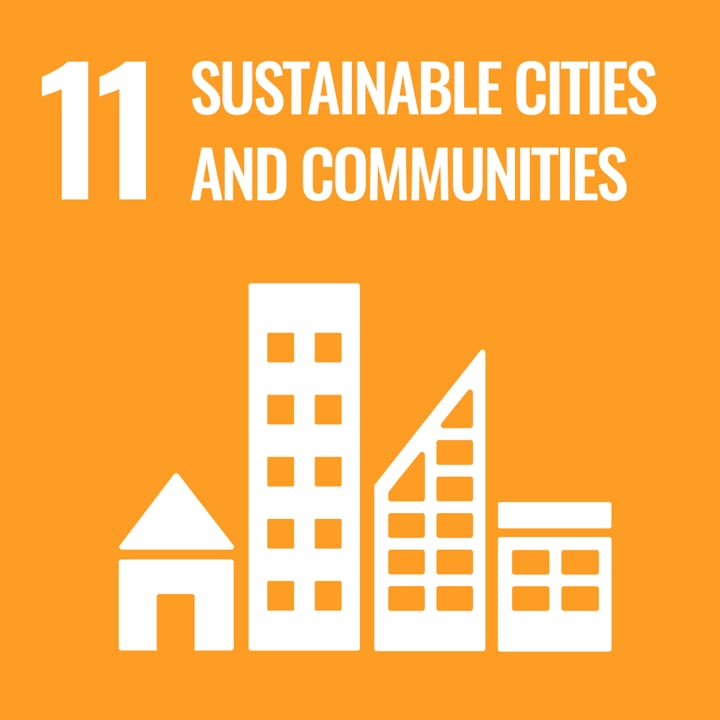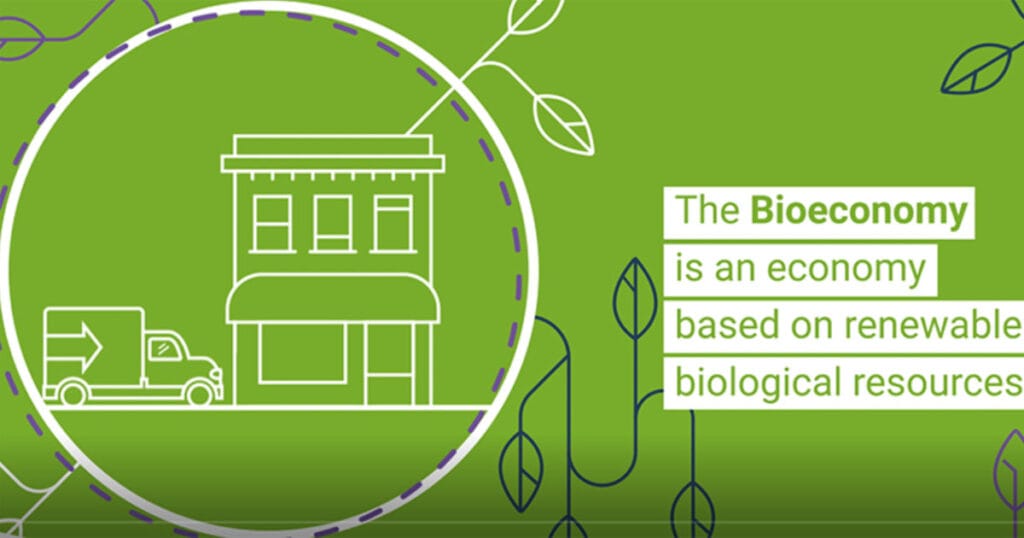
Avsedd slutanvändare: Lärare
Åldersgrupp: Lägre sekundär
Läroplan för skolan: Maths; Science; Social, Physical & Health Education; Social & Environment Science; Languages; Business Studies; Applied Science
Teman och ämnen: Energy Use and Production; Behaviour & Lifestyle; Economics; Futures Thinking; Food and Agriculture
Varaktighet: 3 x lessons, each 45 – 60 min.
Typ av resurs: Case Study, Audio/Video, Lesson Plans, Presentation
Nyckelord: Bioeconomy, Circular Economy, Sustainable Resource Use, Inquiry-Based Learning, Design Thinking
Språk: engelska: Engelska
Beskrivning
What is the Bioeconomy? To break it down, the term bio refers to any living thing; while economy means the making and usage of goods and services by those within a country or region. So, the Bioeconomy is an economy based on renewable biological resources. By using living things instead of those that are non-renewable, humans can grow more to replace diminishing reserves.
The three lessons in Pack 1 will introduce these concepts and links to the UN Sustainable Development Goals (SDGs). It will frequently encourage classroom debate to enhance students’ learning. These debates will have accompanying prompts to help highlight the multiple layers, perspectives and dimensions to the Bioeconomy and sustainability.
After these lessons, students will have a critical and informed knowledge base from which they can make sustainable consumer choices; considering economic, environmental and societal impacts to various decisions.
Så här använder du den här resursen
These packs are all flexible, and have purposely been created on editable templates for teachers/ educators to adapt to local contexts and the needs/abilities of students.
The pack is multimedia, and uses PowerPoints, print-outs, activity guides and video to encourage meaningful learning. Some activities require outdoor space.
Resurserna
Vad är bioekonomi? (PDF):
The THYME Project Teacher Guide to Pack 1: Laying the Foundations provides detailed notes and instruction for teachers to a three-lesson introduction to the Bioeconomy. To accompany this, PowerPoint slides with teacher notes and embedded media content are available to download here:
- Lesson 1: Will we ever run out?
- Lesson 2: What is the Bioeconomy?
- Lesson 3: Is it time to bin the plastic bag?
The full range of resources developed by the THYME Project are available here:
Due to reconstruction of the website of the University of Hull, it might happen that the above-mentioned resources are not available for some time. You can find the resource packs here:
Lärandemål (lärare)
- Ta reda på förkunskaper och vidareutveckla kunskapen om och förståelsen för viktiga nyckelbegrepp inom hållbart medborgarskap genom att utmana etablerade världsbilder och värderingar.
- Tillämpa en rad lämpliga verktyg och ramverk för att främja studenternas hållbarhetsmedborgarskap
- Reflektera över praxis och granska nationella läroplaner för att identifiera möjligheter att främja hållbarhetsmedborgarskap på tvärvetenskapliga sätt och samarbeta med externa intressenter.
- i samarbete syntetisera kunskap, verktyg och ramverk för att skapa utbildningsmaterial och lektionsplaner som är anpassade till deras eget lokala sammanhang
Gröna kompetenser
- Förankring av hållbara värderingar: Värdering av hållbarhet
- Att ta tillvara komplexitet inom hållbarhet: Systemtänkande; kritiskt tänkande; problemformulering
- Att föreställa sig en hållbar framtid: Framtidskunskap; anpassningsförmåga; utforskande tänkande
Creative Commons
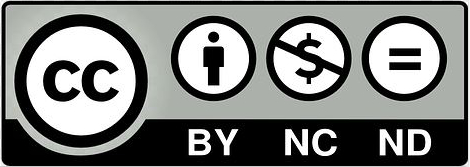
These educational resources were created by the University of Hull’s Energy and Environment Institute, as part of the THYME Project. Researchers worked with school teachers and community organisations to develop activities and lesson plans around Bioeconomy themes and concepts. The multimedia teachers’ resource packs help you introduce the Bioeconomy into your curriculum. They contain lesson plans, worksheets, animation links, written case studies with online resource links, ‘how to’ films and download links for powerpoint presentations as well as careers resources for older students.
Globala mål för hållbar utveckling
